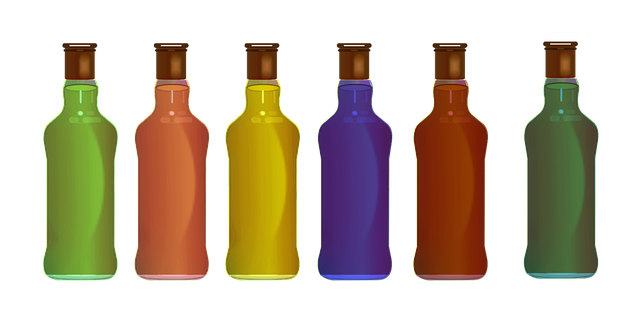Have you ever wondered if drinking bad wine can lead to food poisoning? Well, you’re not alone! Many people are curious about whether the quality of wine can affect their health. In this article, we will delve into this topic and explore whether bad wine has the potential to cause food poisoning. So, get ready to satisfy your curiosity and learn more about the relationship between bad wine and food poisoning.
Now, let’s dive deeper into the subject. Wine is known for its exquisite flavors and the pleasure it brings to our taste buds. However, just like any other food or beverage, there is a possibility that consuming bad wine can lead to unpleasant consequences. While some people might argue that wine is acidic enough to kill any harmful bacteria, it’s important to remember that not all wine is made under the same conditions. In our upcoming article, we will discuss the potential risks of drinking spoiled wine and explore the factors that contribute to its quality and safety. So, if you want to ensure that your next glass of wine is nothing short of delightful, keep reading to discover more about the fascinating world of wine and food safety.

Can bad wine cause food poisoning
Understanding the connection between bad wine and food poisoning
You may have heard about the potential dangers of consuming spoiled food, but can bad wine also cause food poisoning? The answer may surprise you. While it is rare for wine alone to cause food poisoning, the presence of certain bacteria or contaminants in bad wine can indeed lead to unpleasant symptoms. In this article, we will explore the factors that contribute to wine becoming bad, how bad wine can lead to food poisoning, common symptoms, the importance of proper wine storage, how to identify signs of spoiled wine, and the steps you can take to prevent consuming bad wine.
Factors that contribute to wine becoming bad
There are several factors that can contribute to wine becoming bad and potentially leading to food poisoning. One of the main factors is improper storage conditions. Wine should be stored in a cool, dark place to maintain its quality. Exposure to heat, light, and fluctuations in temperature can result in spoilage. Additionally, wine can spoil if it is exposed to excessive amounts of oxygen or if it comes into contact with contaminants, such as mold or bacteria.
Another factor that can contribute to bad wine is poor winemaking practices. During the winemaking process, if proper hygiene and sanitation practices are not followed, bacteria can thrive and contaminate the wine. This is a particularly common issue with homemade or low-quality wines.
How bad wine can lead to food poisoning
So, how exactly can bad wine lead to food poisoning? When wine becomes spoiled, it can harbor harmful bacteria such as Clostridium botulinum, which is responsible for causing botulism. Botulism is a severe form of food poisoning that can lead to paralysis and even death in severe cases. In addition to botulism, other bacteria like Salmonella and Escherichia coli (E. coli) can also be present in spoiled wine and may cause food poisoning if consumed.
It is important to note that while the presence of these bacteria in bad wine is rare, it is still possible. Therefore, it is crucial to take precautions to prevent the consumption of spoiled wine.
Common symptoms of food poisoning caused by bad wine
If you have consumed bad wine that is contaminated with harmful bacteria, you may experience symptoms of food poisoning. These symptoms can range from mild to severe and may include nausea, vomiting, diarrhea, abdominal pain, fever, and headache. In more severe cases, symptoms can also include muscle weakness, difficulty breathing, and paralysis. If you experience any of these symptoms after consuming wine, it is essential to seek medical attention immediately.
The importance of proper wine storage
To prevent the risk of consuming bad wine and potential food poisoning, it is crucial to store wine properly. As mentioned earlier, wine should be stored in a cool, dark place with a consistent temperature. A temperature of around 55°F (13°C) is ideal for long-term storage. It is also important to store wine bottles horizontally to keep the cork moist and prevent oxidation. Additionally, be cautious of storing wine in areas prone to vibrations, as this can negatively affect the quality of the wine.
Identifying signs of spoiled wine
To prevent consuming bad wine and the associated risk of food poisoning, it is important to know how to identify signs of spoilage. Here are some common signs that indicate a wine has gone bad:
- A strong vinegar-like smell: If your wine smells like vinegar or has a sharp, sour odor, it could be a sign of spoilage.
- Cloudy appearance: Wine should generally have a clear and transparent appearance. If you notice cloudiness or sediment in the wine, it may indicate spoilage.
- Bitter or off-flavors: Bad wine may have a bitter or unpleasant taste, different from its usual flavor profile.
- Fizzy or bubbly texture: While some types of wine are naturally sparkling, if a wine that should not have bubbles becomes fizzy, it could indicate the presence of unwanted bacteria.
How to prevent consuming bad wine
To minimize the risk of consuming bad wine and potential food poisoning, here are some steps you can take:
- Purchase wine from reputable sources: Buy wine from trusted wineries, retailers, and distributors that follow proper storage and handling practices.
- Check for quality certifications: Look for wines that have been certified by reputable wine organizations or regulatory bodies.
- Inspect the bottle: Before purchasing, inspect the bottle for any signs of damage or leakage, as these can indicate poor storage conditions.
- Store wine correctly: As mentioned earlier, store wine in a cool, dark place with a consistent temperature and proper humidity levels.
- Consume wine within its recommended timeframe: Wine is meant to be enjoyed within a certain period. Pay attention to the recommended “drink by” date to ensure you are consuming it at its best.
The role of bacteria in wine spoilage
Bacteria play a significant role in wine spoilage and the potential for food poisoning. As mentioned earlier, bacteria such as Clostridium botulinum, Salmonella, and E. coli can contaminate wine and cause foodborne illnesses. These bacteria thrive in environments where there is inadequate oxygen, making improperly sealed or corked wine bottles more susceptible to spoilage. It is important to note that while these bacteria can be potentially harmful, their presence in wine is relatively rare.
Other potential health risks associated with bad wine
While the main concern with bad wine is the risk of food poisoning, there are other potential health risks associated with its consumption. One such risk is an allergic reaction. Some individuals may have allergies or sensitivities to certain compounds found in wine, such as sulfites or histamines. Excessive consumption of bad wine can trigger these reactions, resulting in symptoms like hives, difficulty breathing, or even anaphylaxis in severe cases. It is always wise to consult with a healthcare professional if you suspect you have any allergies or sensitivities to wine.
Conclusion
While it is rare for bad wine alone to cause food poisoning, the presence of harmful bacteria in spoiled wine can indeed lead to unpleasant symptoms. Proper wine storage, purchasing from reputable sources, and paying attention to signs of spoilage can help minimize the risk of consuming bad wine. If you suspect that you have consumed spoiled wine and experience symptoms of food poisoning, it is important to seek medical attention promptly. By taking necessary precautions and being mindful of the quality of wine you consume, you can enjoy your favorite vintages without worry.


